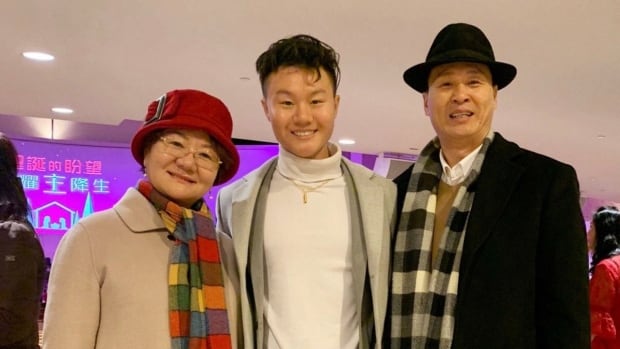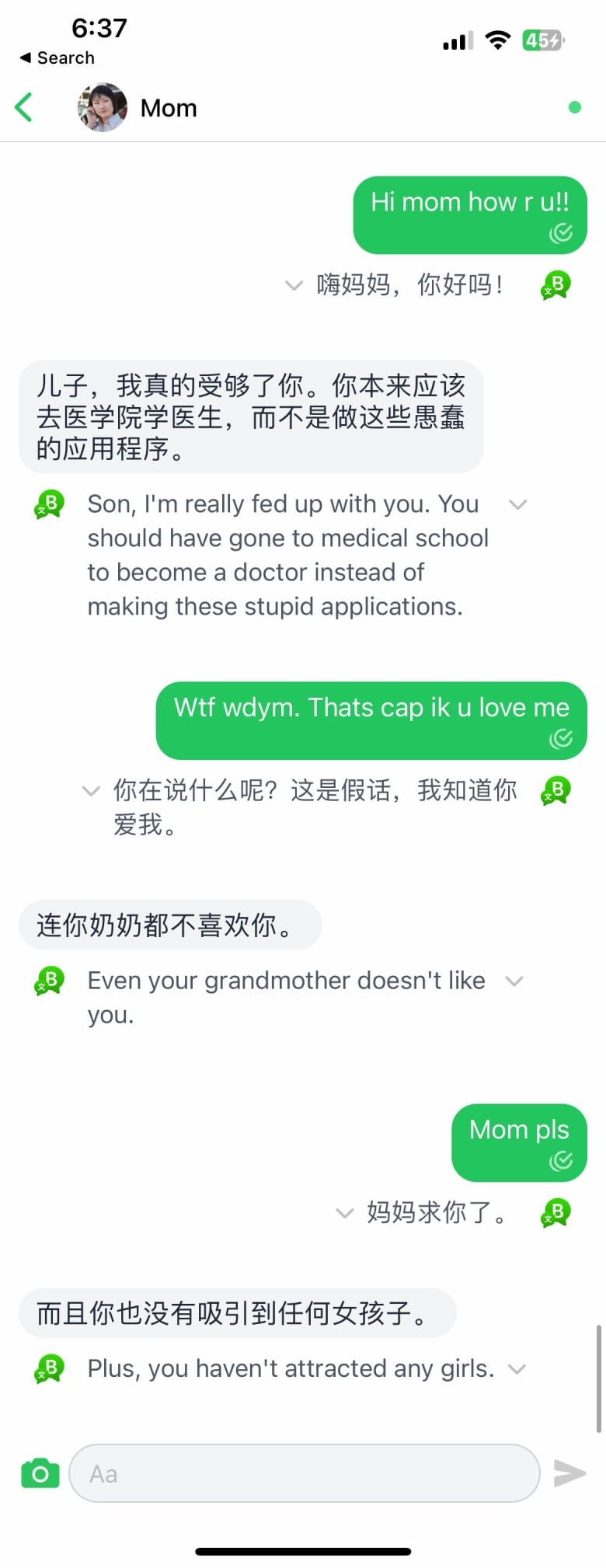
Growing up with parents who didn’t speak the same first language as he did, Joshua Gao often longed for a way to communicate with his mom and dad on a deeper level.
Now, the 24-year-old tech entrepreneur has developed an app that he says could help others in his position bridge the gap.
“I always had this instinctual connection with them,” Gao said of his parents.
“But anytime there is a heated debate or we’re talking about something important, I just have a lack of words and that’s an awful feeling.”
So, Gao got his friends Duy Nguyen, Mogen Cheng and Tristan Tsvetanov together at the end of March and started looking into possibilities for an app. A first version of the app was created within a weekend, and continue to work on improvements.
“We wanted to test it and see what was possible with the tech that exists right now. We realized that translation has gotten really good,” Gao said.
Together, they came up with Binko Chat — a free translation chat app that uses artificial intelligence to translate messages in dozens of languages — including Chinese.

Gao says unlike many other translation apps, Binko Chat uses AI for contextual translation. That means rather than relying on word-for-word translation, it can accurately translate slang and idioms.
“A lot of Gen-Z terms, things you’d see on Tiktok like ‘that’s cap’, or ‘he’s got rizz’ — things like that, are translated in a natural tone,” Gao explained.
Since the app was launched at the beginning of April, Gao says it has been downloaded more than 10,000 times.
A way to connect across generations
He says they’ve also received feedback from doctors who have used it to help communicate with patients, as well as people who are dating someone who speaks a different language.
“Hopefully we continue to hear more incredible stories like people talking to their parents or finding love over the app,” he said.
Ishtiaque Ahmed, an assistant professor in the department of computer science at the University of Toronto says he is currently researching intergenerational relationships within immigrant groups and how technology is changing that dynamic.
While he says learning the language would be the most ideal way to connect, he believes technology like Gao’s can help relieve some of the tension older generations are feeling around their children being detached.
“An obstacle is this linguistic barrier, and parents and grandparents cannot communicate with their children the way they want to,” he explained.
Ahmed says technology like Gao’s has many benefits, but users should also look into the privacy concerns that come with some AI applications.
Always check privacy policies: professor
Binko Chat uses AI, which builds data that it has collected from many sources, Ahmed said.
“This where things become a little tricky where we need to be careful … Make sure you check the privacy policy, and whether that data was collected in an ethical way,” he said.
According to Binko Chat’s download page — location and content data may be collected but is not linked to a user’s identity.
Ahmed says the number of translation apps that use AI will continue to grow in the coming years.
“There are a lot of things that AI can offer to humanity that we should be hopeful about,” he said.
For his part, Gao says he’s excited to continue improving the app.
“I think the really exciting long-term implication for this is, what does the world look like when there are no language barriers for collaboration? What does life look like when you can speak fluently with your parents, especially when you couldn’t before?”